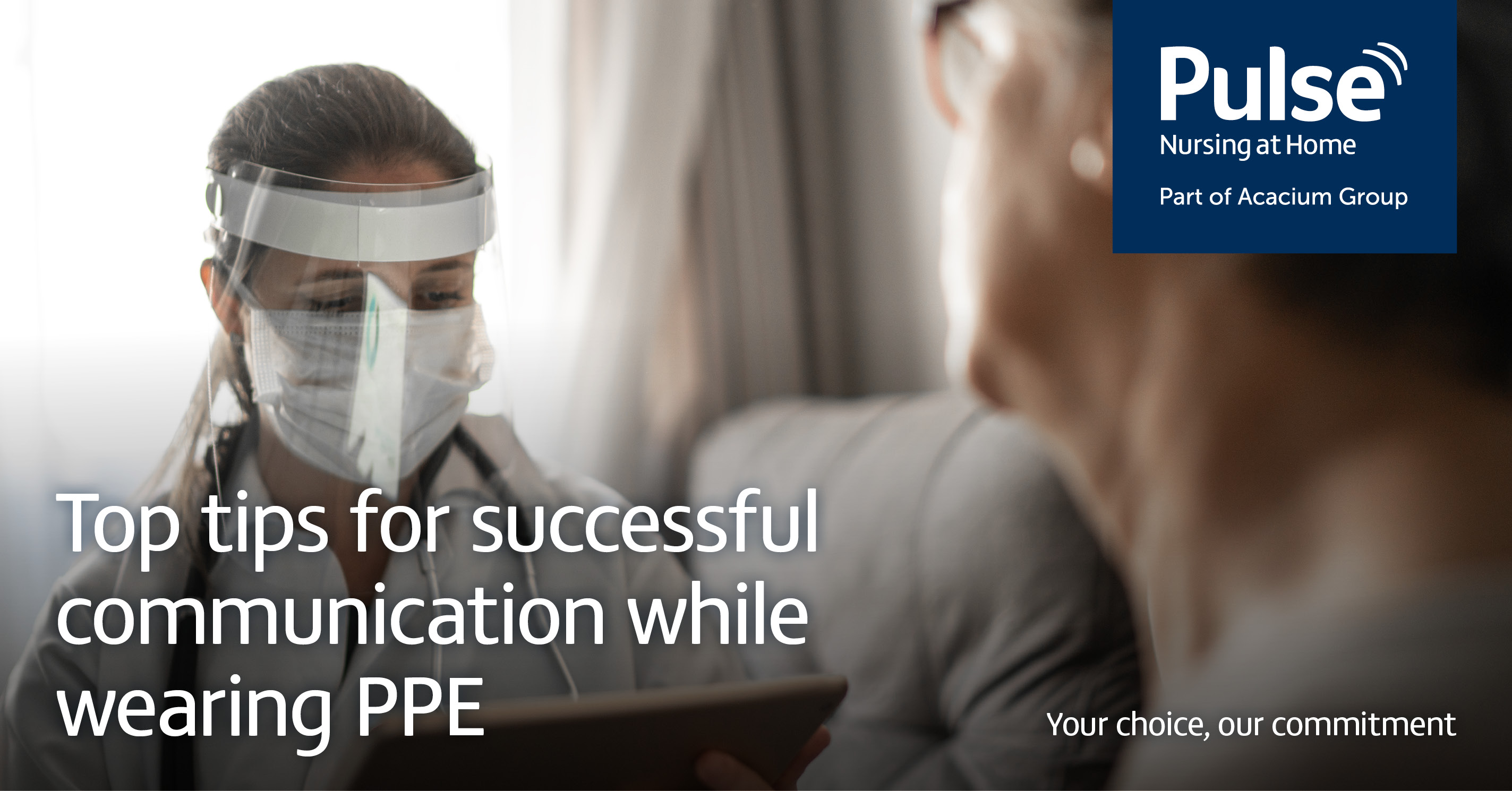





For many healthcare professionals, wearing personal protective equipment (PPE) has directly impacted care delivery in the home and hospital. The requirement to wear clinical face coverings and protective gowns has restricted the way nurses and support workers communicate with their clients in many different ways.
Effective communication is vital in healthcare. It builds and maintains a relationship between the healthcare professional and the client. After all, people are social beings, and we need care from others, especially when we're at our most vulnerable.
The Royal College of Nursing has created an informative article which details the importance of good communication, especially during these times.
Our tone of voice, use of words and body language contribute to sustaining strong relationships with our clients. As healthcare professionals, we are the eyes and ears of our clients. We support them day-to-day by providing high-quality care and support, and companionship.
With the increased use of PPE, it means clients are unable to see your face full, lip read or hear you clearly. This causes communication barriers which can lead to confusion, anxiety and stress and may create an unsettling environment.
In our latest article, Clinical Service Lead, Nikki Goulding, shares her top PPE communication tips for maintaining professional relationships with clients and their loved ones whilst wearing PPE.
Top tips for improving communication while wearing PPE
- Speak clearly and calmly. When communicating with a client, try speaking slowly and pronounce your words clearly. It may be worth raising the volume of your voice slightly to make sure you can be heard through the face mask or visor you’re wearing. Remember not to shout or raise your voice too much as this may scare or confuse the client.
- Focus is key. It’s important to maintain your focus and make sure when you're communicating to really concentrate on the client. Doing so will help you read their reactions and facial expressions to gauge whether they understand you.
- Maintain good eye contact. Eye contact is another way of telling the client you are communicating with them. It’s important to look at the client when you are speaking with them; so they are aware and engaged. If possible, when communicating with the client, sit at eye level so they can see you clearly and read your facial expressions.
- Remember to smile! Despite clients not being able to see your mouth, they will most certainly be able to tell when you're smiling. Your eyes will light up, and your eyebrows will be raised. A simple smile can make someone's day, and it’s important to remember this.
- Avoid sudden movements. It can be difficult for clients to hear you clearly when wearing a face covering. It’s important to remain calm and move slowly; so you don't startle or confuse them.
- Use your body language. It’s important to use your body language to show you are calm and in control of the situation. If the client is struggling to hear you, use your body language and movements to show them what you're trying to explain.
- Be self-aware. Remember to think about how your communication could be perceived by the clients. Remember, they won’t be able to read your facial expressions or see your mouth move when you speak.
- Utilise your imagination. If you're struggling to communicate with the client and their family, utilise what’s around you. Whether that’s typing your message on your phone or writing it on a piece of paper, it might make things more manageable. When caring for younger clients, consider drawing funny pictures to keep them engaged and entertained, especially if they are feeling stressed or anxious and unable to hear you.
With all these useful tips, communicating while wearing PPE can be more manageable for yourself, colleagues and clients. If you can think of any other useful tips, please use the comment box below.
We’re always looking to grow our team of experts nurses and support workers. If you would like to join our team of healthcare professionals, then register with us using the form below, or contact our team on 0207 959 1003.